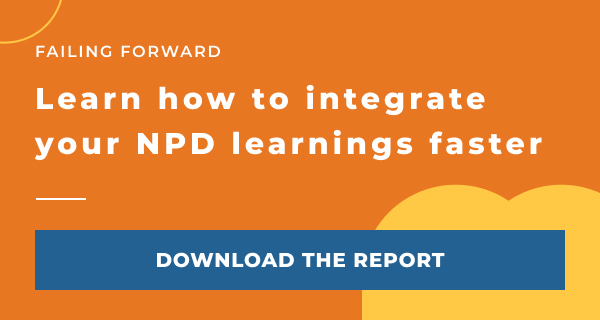UK HFSS legislation: understanding the impact on FMCG
by: PLAY
There are a few Brits here at PLAY Innovation, which is one of the reasons we’ve always got our ear to the ground across the pond. Of course, we also love unearthing insights that help Australian FMCGs make winning products for consumers. That’s why we just had to give you the lowdown when we found out about the UK’s upcoming ban on promoting high fat, sugar and salt (HFSS) products.
The HFSS legislation is being described as “one of the biggest challenges the retail and food and drink industries have faced so far” and it comes into play in October 2022. So, what does this mean? How will it impact the FMCG world? And will Australia follow suit? Read on for all the facts as well as our thoughts, predictions and recommendations.
what the UK HFSS regulation has to say.
The upcoming regulatory changes will see restrictions on TV advertisements while putting a stop to online and in-store promotion of HFSS foods, including items such as chocolate, sweets, soft drinks, cakes, pastries, biscuits, yoghurts, pizza, chips, ready meals and cereals.
This legislation will mean waving goodbye to promotions like “buy-one-get-one-free”, checkout impulse offers and payment page deals. Some exemptions will apply to specialist retailers like chocolate shops, small stores and micro businesses. Still, the ban will have dramatic consequences for the FMCG industry at large.
The policy’s main aim is to improve people’s diets and reduce children’s sugar intake. And how do UK consumers feel about it? Well, most of them are pretty supportive.
“In 2021, 57% of Britons said they would support a ban on online ads and 58% said the same about TV ads.”
— YouGov
could Australia follow suit?
On the other side of the Atlantic, YouGov found that Americans are (perhaps unsurprisingly!) more opposed to the HFSS ban. But here’s the winning question: would Australians feel the same?
Australian Bureau of Statistics research shows that 67% of Australian adults are overweight or obese — and the percentage is rising. Perhaps this indicates that our population would also benefit from similar legislation being enforced. It’s definitely food for thought!

why so sour about sugar (and the rest)?
Over the last few years, the UK Government has been under pressure to stop talking and start acting on one of the country’s biggest health problems: obesity. Jamie Oliver even wrote a scathing letter to Boris Johnson demanding change to protect children from worsening health.
“Two-thirds of adults are above a healthy weight, and over a fifth of children in England are overweight or living with obesity by the time they start primary school aged 5, and this rises to one-third by the time they leave aged 11.”
— GOV.UK
Of course, the topic is a high priority right now due to mounting evidence that obese COVID-19 patients are at a higher risk of health complications and death.
So, why go after advertising HFSS foods specifically? Well, there is oodles of evidence to show that advertising works to influence short-term food choices, particularly with children, and the Government estimates that UK children are exposed to around 15 billion adverts for HFSS products every year.
subscribe for the latest research and insightful updates on NPD innovation
 what will the fallout be from the UK HFSS legislation?
what will the fallout be from the UK HFSS legislation?
As the Government gains almost post-war rationing levels of control over what UK citizens eat and drink, nearly half of businesses remain unprepared for the upcoming HFSS legislation.
While the health benefits to consumers are obvious, many FMCG firms feel understandably bleak about the future. Here’s what might happen:
- Huge swings in category share, especially for impulse-buy items.
- A 35.8% reduction in the annual quantity of beverage purchases, which would negatively impact the industry and post-pandemic economy.
- Changes to product testing (learn more about the battle between Kellogg’s and the UK Government to find out why).
- Challenges with mass reformulation, such as needing to source alternative ingredients that don’t negatively affect taste or function. This is particularly difficult with foods like cakes that require sugar to rise.
But let’s move on from imagining a world without fluffy cakes! On a more positive note (our favourite angle), the new legislation will also create more of a level playing field within the grocery sector by putting healthier food in the spotlight.

your next PLAY.
Obesity is a global issue, and the benefits of this ban will be extensive and life-changing. Regardless of local regulatory changes, this upcoming shift will likely open our eyes as a collective to the need for healthier food formulations and a reduction in HFSS product promotions and advertisements.
Ultimately, the UK HFSS regulation could inspire action in Australia without any legislation being put in place. In fact, Mars is already getting ahead of the game with a new range of non-HFSS chocolate choices.
Here’s our advice to you:
- Be prepared for a range of eventualities by arming yourself with information.
- Stay connected with retailers and work together to find win-win-win solutions.
- Focus your NPD on healthier products that will have more opportunities for promotion and create a halo effect for your brand.
- Create quick wins by tweaking and reformulating existing products that might be “on the cusp”, such as ice cream products that could have a lower sugar or calorie profile.
- Invest in sensory research to support and boost the success of any product changes.
over to you.
Without being too dramatic, the HFSS ban is likely to have an enormous impact on your current products and future sales, so be prepared! NPD and reformulation take time and testing, ya know!
If you’re eager to make a move, get in touch with PLAY Innovation’s FMCG experts. We can’t wait to hear from you.
read it, love it, share it.
about the author
PLAY
As the experts in consumer-led innovation in FMCG, we partner with manufacturers and retailers to lift the productivity and effectiveness of their NPD. It’s all in how we blend innovation advisory with tailored consumer insight using an agile, consumer-first approach. Think of us like the connective tissue within your innovation process. We guide you at every step of the journey, helping you align, focus and develop ideas and products that sell.





ask the author